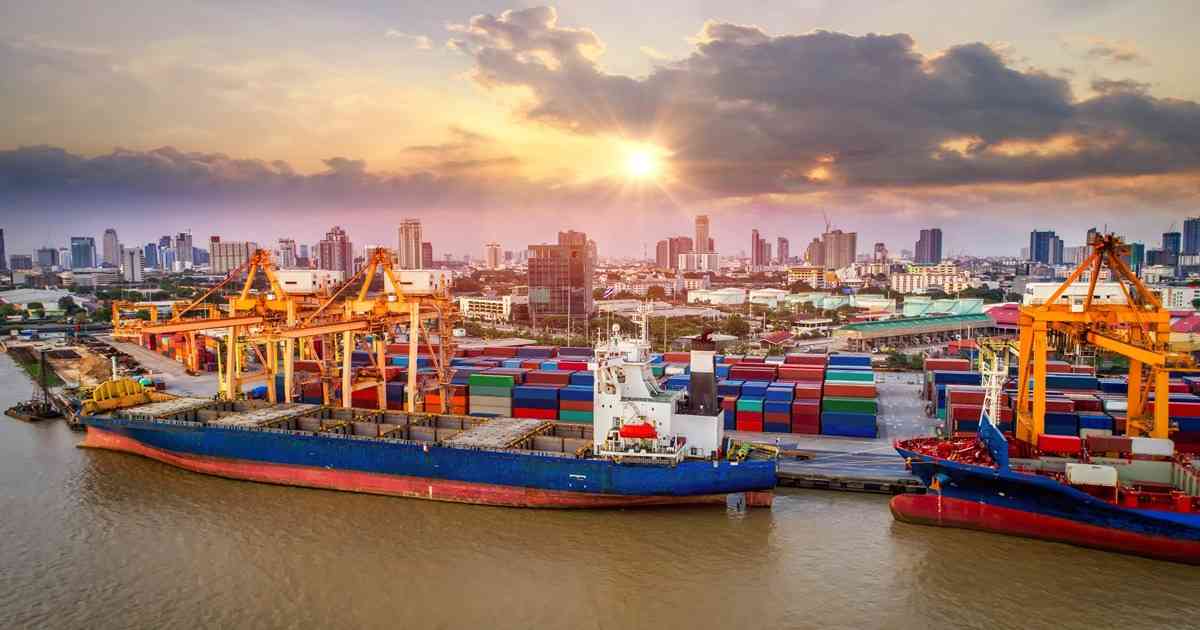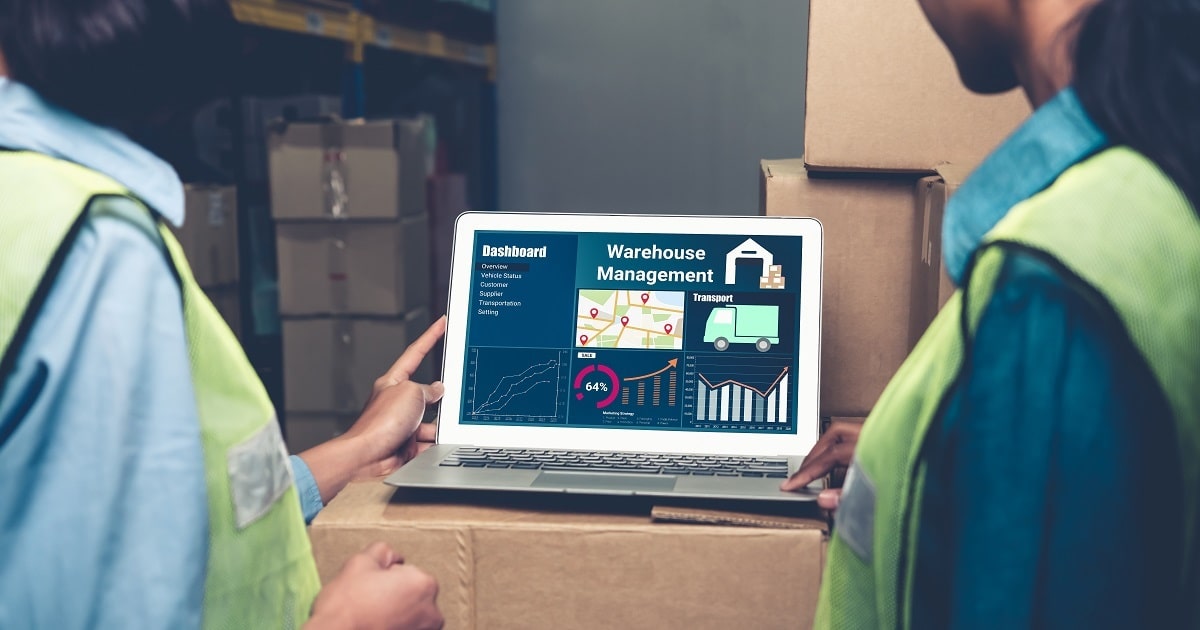
Warehousing and Distribution
Article | July 11, 2023
Discover future trends & innovations at upcoming warehousing conferences and events. Explore technologies, growth opportunities and networking possibilities to improve the supply chain operations.
Warehousing and distribution play crucial roles in the logistics industry. To enhance the expertise and gain a competitive edge, professionals must attend logistics conferences in 2023, including the supply chain management and warehousing conferences and events. These gatherings offer a platform for industry leaders to exchange ideas, learn from experts, and explore the latest advancements.
The following warehousing conferences and events will provide tailored discussions on warehouse optimization, inventory management, and process improvement.
1. ASCM Connect 2023: Europe
June 27-28, 2023 | Brussels (Belgium)
ASCM CONNECT 2023: Europe, held at DoubleTree by Hilton Brussels City, is a must-attend event for supply chain professionals. This networking opportunity will offer educational sessions, trending topics, and valuable insights from industry leaders like Matteo Coppola (Integrated Business Planning Director Kellogg), Hans Ehm (Senior Principal Engineer Supply Chain and Head of Supply Chain Innovations Infineon), Juliana Hsuan (Professor, Operations Management and Supply Chain Management Copenhagen Business School), and more. Logistics and supply chain industry leaders will benefit from the event by gaining knowledge on supply chain management trends and innovations. One of this logistics events further equips professionals with the tools to streamline operations, improve efficiency, and reduce costs.
2. Innovation and Industrial Logistics (ICIIL 2023)
August 25-27, 2023 | Tapi (Macao)
The 9th International Conference on Innovation and Industrial Logistics (ICIIL 2023) is an exclusive supply chain conference for logistics and warehouse management industry leaders. The conference will include topics like purchasing, supply chain management, transportation, and warehouse optimization. This warehouse event will offer valuable insights into the latest trends and advancements. Professionals will be able to network with experts and peers, fostering collaboration and partnerships. Attending ICIIL 2023, held at the Macau University of Science and Technology, will enable attendees to enhance their expertise, optimize operations, and stay ahead in the dynamic supply chain and logistics industry.
3. ASCM Connect 2023: North America
September 11-13, 2023 | Louisville (Kentucky)
An indispensable supply chain event for logistics industry leaders will have 120+ speakers, 70+ education sessions, and eight innovation labs. This premier event will offer a comprehensive program with thought-provoking insights, hands-on workshops, and networking opportunities. Keynotes by influential figures such as John J. Sullivan (Former United States Ambassador to Russia (2020-2022)), Elliott Harris (United Nations Chief Economist), and Amanda Manna (Futurist and Vice President, Singularity University) will further enhance the experience. Attending ASCM CONNECT 2023 will enable professionals to stay ahead in the dynamic supply chain industry and encourage them to enlarge their network with people having different ideas from the industry to improve business operations.
4. Automotive Logistics and Supply Chain
September 26-28 2023 | Dearborn (Michigan)
A pivotal event for the supply chain and logistics industry, Automotive Logistics & Supply Chain Global will offer the opportunity to regain control and confidence in North America's automotive supply chain after years of crisis. It will explore the impact of policies on supply chain operations and emphasize the importance of building diverse and inclusive teams. Key speakers include Renee Wawrzynski (Executive Director of Global Logistics at General Motors), Chris Styles (Vice President of Logistics at Lucid Motors), and Oliver Bilstein(Vice-President Production Control, Logistics, and Material Control. BMW Manufacturing Co.), and others will share valuable insights. In addition, this warehouse conference event will be equipping professionals to navigate the challenges of a rapidly changing industry.
5. LogiPharma
October 04-06, 2023| Boston (Massachusetts)
This event for pharma, biotech, and medtech supply chain executives in North America, has been a beacon of innovation and best practices since its inception in 2002. From a network monitoring expert's perspective, attending LogiPharma offers industry leaders in the supply chain and logistics industry an unparalleled opportunity to stay ahead of the curve. By bringing together supply chain leaders from the manufacturing and distribution sectors, LogiPharma will promote collaboration and enhance supply chain management effectiveness. Attending this logistics and pharmacy conference will enable executives to be updated with industry trends and build vital relationships through interactive sessions and workshops by key speakers like Samir Gami (Sr. Director of Advanced Customer Capabilities Johnson & Johnson - Janssen), Ed Ram (Sr. Director, Supply Chain Sagent Pharmaceuticals), David Sokoloff (Director, Global Logistics & Materials Management Novavax), and more. Prepare to transform the business and build a resilient supply chain in the dynamic pharmaceutical industry.
6. Logistics Technology USA 2023
November 1-2, 2023 | Dallas (Texas)
To foster growth and disruption in the logistics industry, Logistics Technology USA is the premier event where logistics technology innovators gather. This warehouse management conference will offer logistics service providers the opportunity to experiment, break barriers, and create the future of logistics. With a focus on cutting-edge technologies like machine learning, drones, robotics, and artificial intelligence, attendees can gain valuable insights to enhance their businesses. Key speakers will share their expertise, including Pritha Mehra (Chief Information Officer and Executive Vice President of USPS), Ben Cubitt (Senior Vice President of Procurement and Engineering Uber Freight), Geoff Kelley, and others. Further, the conference will offer valuable sponsorship opportunities to get your brand in front of prospects and clients who can transform your business. The networking sessions also facilitate meaningful connections, helping kickstart sales cycles and accelerate business development efforts.
7. 7th Annual European Supply Chain Management Summit
November 07-08, 2023 | Las Vegas (US)
The European Supply Chain Management Strategies Summit is a leading supply chain conference that will offer senior leadership case studies and solutions. This event's primary focus will be to improve logistics and inventory management, implement IoT and new technologies, enhance supplier collaboration and transparency, and mitigate process risks. Additionally, the event is CPD accredited, ensuring the best opportunities for professional development. The event will also be enriched with inputs from the following key speakers, including Angelo Dalporto, a renowned expert in logistics and inventory management, Damodar Hegde, an authority on implementing IoT and new technologies, Leon van der Merwe, a specialist in supplier collaboration and transparency, Luke Kerr, a seasoned professional in risk mitigation strategies, and Sebastian Sołtys, an expert in workforce leadership and engagement. Their valuable perspectives and knowledge will help improve the supply chain warehousing and distribution strategies.
8. Future Supply Chain
November 28-29, 2023 | Torrey Pines (California)
Unlock the secrets to achieving total visibility in your supply chain at the upcoming digital supply chain event. With a staggering 69% companies lacking complete transparency, this event is a must-attend for supply chain and logistics industry leaders. The event will provide practical insights from end-user case studies and guide how to implement transformative technologies to propel the supply chain forward. The event will also boast an impressive lineup of key speakers, including Dave Campbell (Associate Director of Supply Chain Transformation, Proposals, & Comms), Sree Duggineni (Executive Director, Supply Chain Operations), Imara Charles (Vice President, Process and Digital Excellence), Marcus Handy (Director of Supply Chain and Operations), Ivy Huynh (Head of Logistics, Supply Chain), Reginald Mingot Blanc (Vice President of Operations & Integrated Supply Chain), Alexandra Garyn (Senior Director of Supply Chain Management), and Hari Perumal (Chief Supply Chain Officer).
9. The Global Destination for Logistics and Supply Chain Innovation
February 05-07, 2024 | Caesars Forum (Las Vegas)
Experience the future of logistics at Manifest, the premier gathering that will unite Fortune 500 global supply chain executives, logistics service providers, innovators, and investors in Las Vegas. This exclusive event will showcase the latest advancements in logistics tech and end-to-end supply chain practices that will help shape the industry's landscape. Supply chain and logistics experts will have unprecedented access to industry leaders and thought-provoking sessions that will provide valuable insights into emerging trends and strategic opportunities. Key speakers include Zane Adams (Co-Founder of EVP Strategy and Development FedUp Foods PBC), Moid Alwy (Chief Supply Chain Officer at EVP), Ian Arthurs (CEO & Founder at Circular.co), Andy Bair (Founding Partner at Sway Ventures), Amiee Bayer-Thomas (Chief Supply Chain Officer at Ulta Beauty), and Stephanie Benedetto (CEO & Founder of Queen of Raw).
10. IWLA Convention & Expo 2024
April 21-23, 2024 | Orlando (Florida)
The 2024 IWLA Convention & Expo is an event for warehousing leaders of North America's logistics and supply chain industry. This supply chain convention will offer a unique opportunity to connect, learn, and network with fellow logistics leaders. Whether you're a first-time attendee or a returning participant, the convention promises valuable experiences and connections that can enhance one's profession in the warehousing industry. Joining this event will provide insights into the latest trends and best practices and foster new relationships and a wealth of ideas to drive warehouse logistics operations forward. In addition, this premier gathering of warehouse industry professionals will also emphasize the solutions and experiences of the key speakers from the industry.
Key Takeaway
Attending logistics conferences such as the supply chain management conferences and warehousing conferences & events in 2023 is essential for professionals in the logistics industry. These events offer valuable opportunities to exchange knowledge, learn from experts, and explore the latest advancements in supply chain management and warehousing practices. Professionals will be able to optimize their supply chains, enhance warehouse operations, and gain a competitive edge in the dynamic business landscape by participating in these gatherings. Drive business success by leveraging the techniques and networking opportunities, these industry-leading events provide.
Read More

Transportation
Article | April 26, 2023
The complexity of today’s supply chain has resulted in a highly fragmented supply chain ecosystem. Whether it is a global pandemic or an ongoing war, streamlining the moving parts in the supply chain management system is an immense feat in the current climate. The resulting shortage of materials, disruption of transportation, and delays have complicated the supply chain even further. Add to it the expectation to minimize expenses, optimize inventory, and enable quality and customer expectations, and stakeholders at every level of the supply chain are inundated with challenges.
This is where using advanced analytics in supply chain can be a game changer for many manufacturers. It can help them gain a deeper insight into their operations and how the supply chain is moving.
How Supply Chain Analytics Enriches Supply Chain Management
A 360-degree view of the supply chain is crucial for supply chain leaders. A lack of insight can cause costly delays and avoidable disruptions. Obtaining complete visibility in supply chain management, on the other hand, can be difficult. The immense volume of data that many organizations have to deal with makes it difficult to gain proper insight.
Supply chain analytics tools help in gaining a better sense of the aggregated data from different parts of the supply chain, such as procurement, ERP in supply chain management, warehousing management, shipping and logistics management, and many more. The more accurate the data is, the simpler it is to use advanced supply chain management analytics to forecast, predict, and plan better in order to maximize the supply chain’s capabilities.
Optimizing the Supply Chain: 3 Ways to Do so with Analytics
With the range of analytics applications in supply chain in use today, manufacturers have the opportunity to completely transform how to view, manage and strategize. Here are five data analytics supply chain tools to consider in the pursuit of optimization.
Demand Forecasting
Inventory management is at the heart of supply chain optimization. Not calibrating the inventory stock based on demand and supply for bestselling products and those that don’t move fast can cause either an overstocking or understocking problem. Either way, forecasting the right balance is difficult to achieve, but data analytics can make it simpler. The lack of the right products in stock can heavily impact the bottom line. According to a survey by Logility, 36% of supply chain experts consider inventory optimization the primary reason for adopting analytics. An integrated mapping of retail sales, inventory levels, and the flow of goods will lead to accurate demand forecasting.
This data can empower organizations to:
Strategize sales promotions
Define product pricing
Maximize budgets
Predict accurate inventory levels
Inventory management has a cascading effect on the supply chain, and advanced demand forecasting has helped many organizations achieve an optimum level of inventory for the right products.
Predictive Warehousing Maintenance
Machine Learning (ML), artificial intelligence (AI), and the Internet of Things (IoT) have been emerging technologies on the supply chain management landscape. By using a mix of these technologies, it is possible for manufacturers to deploy predictive maintenance in warehousing. Predictive maintenance is the process of assessing data generated from the past and in real-time to determine patterns and identify equipment failure and maintenance schedule before a breakdown occurs.
This helps manufacturers to:
Avoid heavy repair costs
Plan spare part supply
Slash downtime from equipment failure
Eliminate production delays
In addition to reducing production bottlenecks, predictive maintenance gives businesses the ability to manage their equipment and optimize their shelf-life.
Warehousing Efficiency
At the warehouse phase of the supply chain, analytics can help manage the supply chain in more than just one way. The warehouse workflow is just as crucial, as it facilitates a clear view of the condition of goods as well as the optimization of the warehouse space. In addition to warehouse space maximization, quality control is another challenge that warehousing management addresses.
Supply chain analytics can enhance warehousing efficiency by:
Ensuring the correct storage of goods based on their weight, fragility, and perishability
Aligning with resource management like equipment, vehicles
Identifying disruptions to storage before they occur
One of the advantages of supply chain analytics is getting a deep insight into the warehouse’s operation so manufacturers can identify gaps and take steps to make it more efficient.
Transportation Tracking
Real-time analytics of transportation and logistics is a crucial piece in the puzzle of supply chain management. For example, the data generated in relation to fuel consumption, weather conditions, and even traffic patterns can help organizations boost their logistics and carrier management.
It can help them to:
Schedule deliveries
Determine better routes
Evaluate current routes
Strategize their shipping schedule
To Wrap it Up
To put it simply, a deep insight into the supply chain, inventory management, and warehouse operations is a great way to ensure the supply chain is on track. Effective supply chain management software is an asset for an organization when it is able to leverage the insights and make well-informed strategies to further optimize the supply chain.
Read More

Supply Chain
Article | May 26, 2023
Warehouse Management System
In Supply Chain, warehouse management acts as the bridge between the supplier and customer. The warehouse facility utilized to consolidate or accumulate products and reduce the transportation cost to achieve economy. Warehouse Management System (WMS) refers to the movement and storage of materials within a warehouse. WMS is part of the Supply Chain Management and concerned with the receipt, shipping and picking of materials.
To effectively monitor the flow of products, WMS utilizes technology devices such as Barcode scanners, Bio-Metrics, and RFID to name a few. A seamless link created between the warehouse facility, order processing and logistics management till shipment. Warehouse management just not limited to the warehouse; it can also a component of Supply Chain Management (SCM) and, when done well, provides a competitive advantage to the business or organization.Supply Chain Management is the management of flow of goods and services including raw materials, work-in-process inventory and finished goods. The markets these days are transcending borders and managing the demand-supply quotient is increasingly getting complex. Production centers are setup at locations where the raw materials and labour are cheaper. Raw materials sourcing and finish goods distribution are done globally.
Supply Chain Management
Thus Supply Chain Management refers to all business processes and activities involved from the procurement of raw materials to the manufacturing and distribution of finished products. SCM in short is the art of providing the right product at the right time, place and cost. As inferred, SCM gets much wider in scope than WMS. However, WMS is perhaps the last mile in the Supply Chain Management system and any hitch in the efficacy of WMS system hampers SCM too.
Conclusion
The primary aim of Supply Chain Management is to match supply with demand. For this to work, the supply chain should be free from bottlenecks such as errant supplies, difficulty in sourcing etc. There seemed significant confusion about the phrases SCM and WMS until recently, and both frequently used interchangeably. However, it been generally accepted that warehouse management refers to the logistics of warehouse, storing, stocking, and also movement of goods. The term Supply Chain has a much broader focus involving suppliers, manufacturers and retailers.By providing customer centric operations in warehousing, companies gain competitive advantage. SCM tools help manage the supplies effectively keeping inventory at optimum levels. The efficiency of SCM relies to a large extent upon the efficiency of WMS. The SCM’s primary concern is to find out the best storage levels, which the WMS attempts to address. Therefore, it is seen that the SCM & WMS are only complementary in nature and not competing. Warehouse Management system also complements the Sales Management System by shortening the sales cycle through quick data access and delivery of quality service, every time.
Read More

Article | June 27, 2020
At Schneider Electric, meeting our customers’ expectations is a key priority. As concern over COVID-19 (Novel Coronavirus) grows, we are monitoring developments to this situation globally, as well as following local health and government regulations, continually assessing and responding to changes.
Our Business Continuity Plan (BCP) has been tested and implemented in geographies impacted. This plan includes health and safety, supply chain, lifecycle management services, and IT infrastructure.
Schneider Electric operations meet the criteria of an essential critical infrastructure as defined by most governments. While we do not anticipate interruptions to our operations, local governments may require temporary containment measures. In these cases, we comply with local laws, and in most cases seek support from local authorities to maintain critical business operations as an essential business for our communities.
Read More